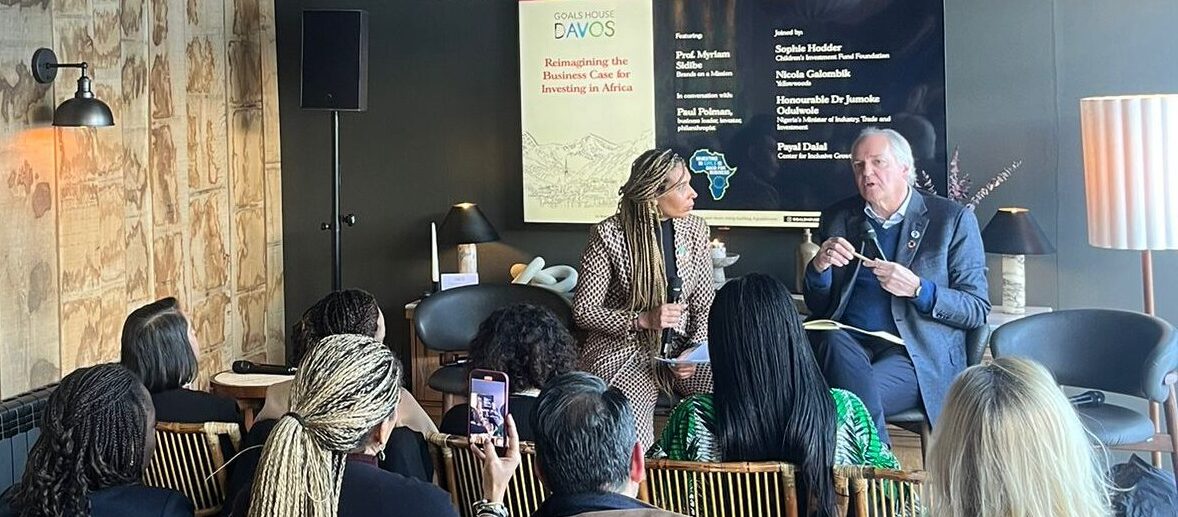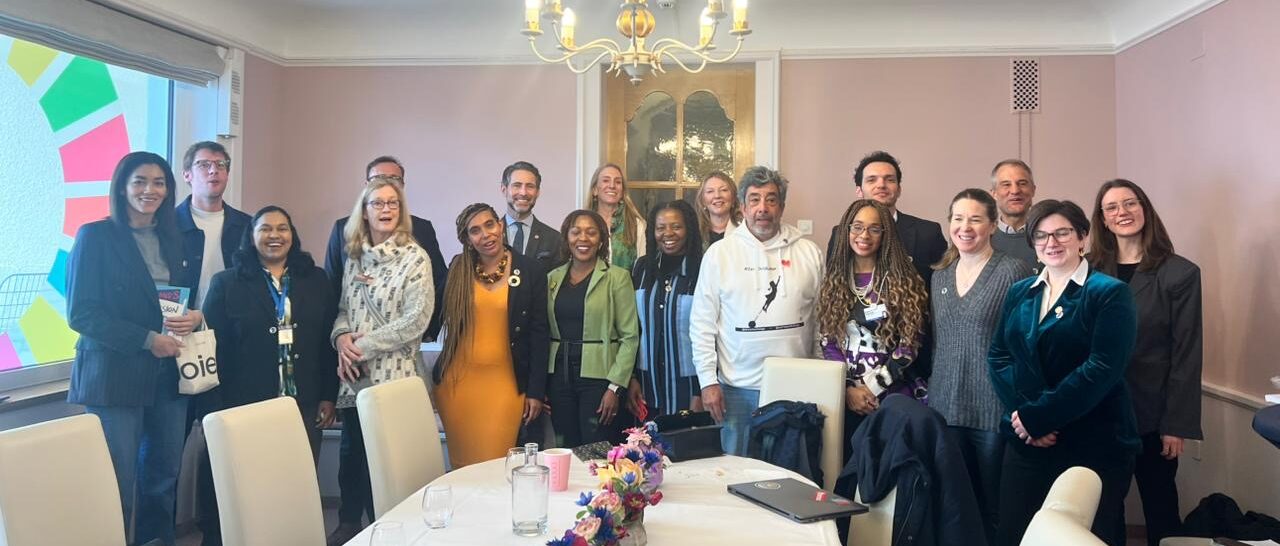CIFF at Davos 2025: Why Women and Girls Are the Best Business Partners for Africa’s Future
By Faustina Fynn-Nyame, Executive Director, CIFF Africa, Myriam Sidibe, Founder, Brands on a Mission & Paul Polman, Business Leader, Philanthropist & Investor.
In January, global leaders convened at the World Economic Forum in Davos, a pivotal platform for addressing the world’s most pressing challenges through cross-sector collaboration. CIFF and Brands on a Mission seized the moment to spotlight the urgent need and prime opportunity for realigning global investment priorities toward initiatives with transformative social and economic potential. The case for investing in Africa is stronger than ever, not only for the continent’s unparalleled growth potential but for the unique opportunity to drive equitable and inclusive development. At the heart of this opportunity is the untapped power of Africa’s women and girls.

Engaging discussions on the critical role of investing in Africa with Myriam Sidibé from Brands on a Mission and Paul Polman, business leader and former Unilever CEO
Women and girls are among Africa’s greatest economic drivers, and investing in them is a prerequisite for the continent’s sustainable development. By 2050, Africa’s population will double to 2.5 billion, with more than half under 25. This youthful demographic represents an enormous market for goods, services, and innovation. According to McKinsey, consumer spending in Africa could reach $3 trillion by 2030.
The recently published ‘Foresight Africa: Top Priorities for the Continent 2025-2030’ report by Brookings’ Africa Growth Initiative spotlights Africa’s often-overlooked role in global dynamics. The continent hosts some of the world’s fastest-growing economies and populations, boasts vast reserves of natural resources and critical minerals, and experiences rapid digitalization alongside increasing global collaborations and competitions.
Investing in Africa is not charity; it is smart business. However, Africa’s promise is not just about financial returns. Socially impactful investments in women and girls drive progress toward eradicating poverty, achieving gender equity, and fostering inclusive growth especially as we approach the 2030 deadline of achieving the Sustainable Development Goals (SDGs). By aligning financial priorities with social impact, businesses can lead the charge in creating a more equitable and prosperous world.
The Economic Case for Investing in Africa’s Women and Girls
Despite their immense potential, African women and girls continue to face systemic barriers, including limited access to education, economic exclusion, and gender-based violence. Over 20 million girls in sub-Saharan Africa are out of school. Educated girls marry later, earn higher incomes, and break intergenerational cycles of poverty. In November 2024, The Children’s Investment Fund Foundation (CIFF) committed $125 million over five years to initiatives in Africa and India aimed at protecting children—particularly girls—from harm, including gender-based violence, but we need more private partners to step up.

CIFF and Brands on a Mission gathered advocates for women and girls at the event “The Business Case for Investing in African Girls” in Davos
The economic benefits of investing in women are clear. Women constitute 58% of Africa’s self-employed population and supporting women entrepreneurs drives innovation, creates jobs, and empowers entire communities. When women work, economies grow. Closing gender gaps in the workforce could add $316 billion annually to sub-Saharan Africa’s GDP, according to the World Bank. Additionally, women are major financial decision-makers, controlling 70% of consumer spending in Africa. Failing to engage them is a missed business opportunity.
The Private Sector as a Catalyst for Africa’s Growth
Africa’s future depends on collaborative action from all sectors. Businesses must transition from being mere funders to active co-creators of solutions and work with both governments, philanthropy and wider civil society.
Public-private partnerships and investment mechanisms such as blended finance can be used to amplify efforts, making solutions scalable and impactful. AGRA is an example of how multi-sectorial partnerships using targeted investments in agriculture can empower women farmers while enhancing food security and economic resilience. Such models should inspire broader action.
It’s key to collaborate with local partners to ensure investments and solutions are culturally relevant and sustainable. One such example is CIFF’s investment in NEST360 is designed to include multiple stakeholders, working with both hospitals, governments and engineering colleges across Africa to transform neonatal care and reducing the risk of infant mortality and ensuring sustainable improvements of healthcare delivery.
Individual initiatives and financial contributions alone are not enough. Businesses can use their platforms to advocate for structural reforms that promote gender equity. Brands and advertisement also hold the potential to shift structural biases and norms that hold girls back. With over 350 African companies making more than 1 billion revenues we have a chance to be fully transformative by Africans for Africans. This includes equal pay laws, protections against gender-based violence, and gender transformative policies in the workplace. Engaging in multi-stakeholder coalitions can accelerate progress, setting the stage for inclusive growth across the continent.
Inviting the Private Sector to Partner for Progress
Building on the discussions had at Davos 2025, we invite private businesses to engage in partnerships and propel private investments to unlock the unparalleled economic potential of African girls and young women. By integrating cross-sector expertise, we can develop investable opportunities and implement scalable solutions that ensure women and girls not only participate in but lead within the fastest-growing markets globally.
The stakes are high, but the rewards are even greater. In 2030, we envision a world in which private sector investment in evidence-based, impact-first initiatives in service of African girls and young women is the norm and not the exception.